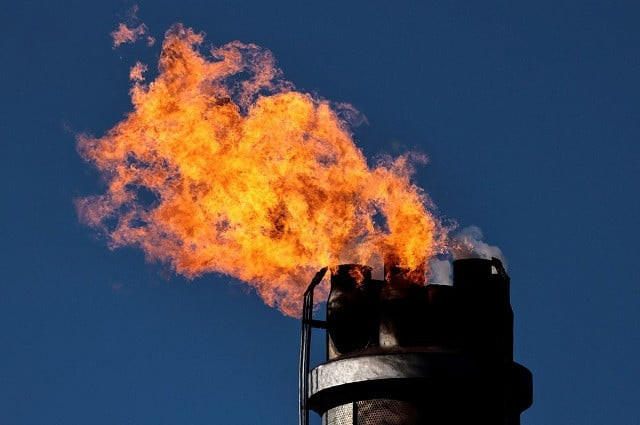Refineries to enjoy 10% tariff protection
Amended policy guarantees 7-year protection for refineries upgrading plants

The government has notified amendments to the Refinery Policy 2023 that guarantees a 10% tariff protection for seven years to the existing oil refineries eager to upgrade their plants to enhance petrol and diesel production with Euro 5 fuel specifications.
The new policy is expected to draw an investment of up to $6 billion in the expansion of oil refineries. Tariff collection will go into an escrow account while the refineries will be able to withdraw up to 27.5% of funds for plant upgrades.
With the expansion of production facilities, the refineries will double their diesel production capacity, thus lessening reliance on imports.
The refineries qualifying for tariff protection can withdraw up to 24.5% of total project cost from the joint escrow account on the import of used plant, machinery and equipment (PME) for upgrading their plants.
However, the refineries desiring to import new PME will be able to draw a maximum of 27.5% of total project cost from the joint escrow account.
Pakistan Refinery Limited (PRL) has already signed an agreement with the Oil and Gas Regulatory Authority (Ogra) and awarded contracts for capacity expansion from 50,000 barrels per day (bpd) to 100,000 bpd.
However, other refineries raised observations pertaining to spending from the escrow account and force majeure clauses.
The caretaker government, after negotiating with the refineries, has amended the policy. The amended oil refining policy was notified on February 23, 2024 following its approval by the cabinet on February 15, as recommended by the Cabinet Committee on Energy in its meeting on February 6.
The policy was initially notified on August 17, 2023 but it has now been amended after taking into consideration concerns of the refineries over some of the clauses, which would have left the proposed upgrading projects unviable.
The amendments were made after intense and prolonged consultations among the government, refineries, and independent financial and legal advisory firms.
When contacted, Oil Companies Advisory Council (OCAC) Chairman and Attock Refinery Limited Chief Executive Adil Khattak said the new refinery policy would enable oil refineries to undertake major upgrade projects to not only comply with Euro 5 fuel specifications but also increase production of deficit products, such as petrol and diesel by 99% and 47% respectively.
It will also result in slashing furnace oil output by 78% which, because of drastically reduced demand in recent years, often causes storage constraints, forcing the refineries to reduce capacity utilisation.
The upgrading of refineries will attract investment of $5-6 billion, lead to the production of cleaner, environmentally friendly fuels and major savings in foreign exchange.
Read Refineries warn of shutdown, seek incentives
Khattak emphasised that the modernisation of refineries would surely be termed the most important achievement of the caretaker government and voiced hope that the policy would be implemented in true letter and spirit.
The policymaking process, which took more than four years mainly due to changes in governments and bureaucracy, was initiated by Nadeem Babar in his capacity as special adviser to the then prime minister. Final credit for taking on board all stakeholders after due diligence and independent professional input goes to outgoing Energy Minister Muhammad Ali.
Khattak pointed out that the role of Ogra and the Directorate General Oil had been pivotal in formulating the policy and would also remain critical in successful execution of the policy.
According to the 2023 refinery policy, there will be a minimum customs duty or regulatory duty of 10% on imported motor gasoline (petrol) and diesel for seven years from the date of notification of amendments to the policy.
Any customs duty exceeding 10% and reflected in the ex-refinery price will be channeled into the inland freight equalisation margin (IFEM) pool.
The refineries ineligible for incentives must deposit the same in the IFEM pool. Any customs duty on crude oil will be reimbursed to the refineries through IFEM.
Refineries will enjoy a 10% tariff protection, or deemed duty, applicable to ex-refinery prices of motor gasoline and diesel for seven years from the date of signing of the project upgrade agreement and opening the joint escrow account with Ogra within 60 days of the notification of amendments to the policy.
However, the refineries must deposit 2.5% of deemed duty on diesel and 10% on motor gasoline (incremental incentive) in the escrow account held jointly by Ogra and the respective refinery in the National Bank of Pakistan for utilisation on upgrading projects.
Until the opening of the escrow account, the incremental incentive will be deposited in the IFEM pool. The prevailing 7.5% deemed duty on diesel for sustainability will continue after the seven-year incentive period for 20 years or until deregulation, whichever is earlier.
For an existing refinery to qualify for the fiscal incentives outlined in the policy, it must within 60 days, after the notification of amendments, execute a legally binding upgrade agreement with Ogra.
The agreement will specify the output and outcome of the committed upgrade, including the maximum production of Euro 5-compliant motor spirit and high-speed diesel and a reasonable reduction in furnace oil output, as outlined in the Front-end Engineering Design (FEED) of the upgrade project, along with proposed milestones and tentative timelines including a feasibility study, FEED, financial close, engineering, procurement and construction contract and commissioning.
Published in The Express Tribune, February 25th, 2024.
Like Business on Facebook, follow @TribuneBiz on Twitter to stay informed and join in the conversation.



















COMMENTS
Comments are moderated and generally will be posted if they are on-topic and not abusive.
For more information, please see our Comments FAQ